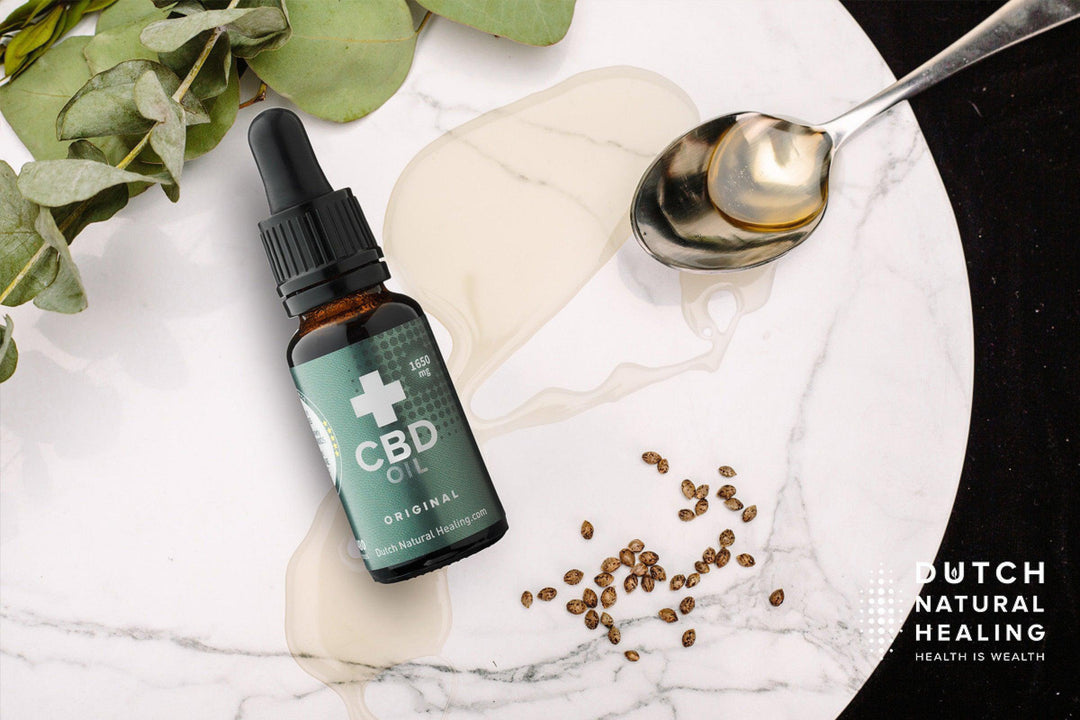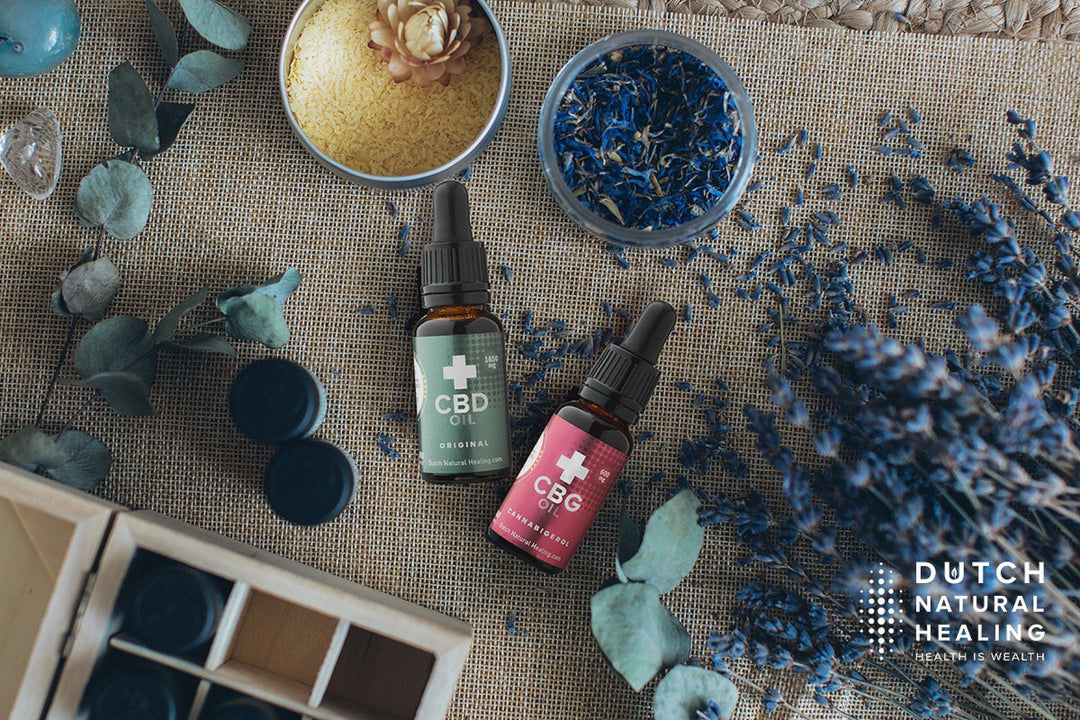People often assume CBD and hemp seed oil are the same. However, they are two separate supplements. The source of this confusion is understandable, as CBD oil and hemp seed oil are both derived from the same plant (the hemp plant or Cannabis Sativa).
Where CBD oil is traditionally used holistically to help alleviate a range of issues like anxiety or insomnia, hemp seed oil is more commonly used as a nutritional supplement or in organic cosmetics.
Both types of oil have their own health benefits, so it’s essential to know how each one works. In this blog, we’ll guide you through the differences between CBD oil and hemp seed oil, as well as their potential benefits to help you choose the best product for you.
What is hemp seed oil?
Hemp seed oil, also known as hemp oil, is a type of fatty oil that is extracted from the seeds of the hemp plant.
One of the key benefits of hemp seed oil is that it is rich in omega fatty acids, including omega-3 and omega-6. Hemp seed oil also contains vitamin E and other minerals, making it a popular dietary supplement for supporting overall health, nutrition, and well-being.
Unlike CBD oil, hemp seed oil contains next to no CBD or other cannabinoids.
Hemp seed oil is a versatile and nutrient-dense oil that can be used in a variety of ways, including as a cooking oil or dietary supplement. If you're looking for a natural source of omega fatty acids and other nutrients, hemp seed oil should be a consideration.
What is CBD oil?
CBD, short for cannabidiol, is one of the most abundant active compounds found in the cannabis plant. CBD oil is made by adding hemp extract to a carrier oil which allows the CBD to be easily consumed and absorbed into the body. Unlike hemp seed oil, it is made using the flowers, leaves, and stalks of the hemp plant.
When shopping for CBD oil, it's important to note that there are three different types available - full-spectrum, broad-spectrum, and CBD oil made using CBD isolate.
Full-spectrum CBD oil contains all the compounds of the cannabis plant, including THC, although at a very low level. This type of CBD oil is believed to be the most effective as all the compounds work together in a phenomenon called the entourage effect.
Broad-spectrum CBD oil contains several compounds, but not THC. This type of oil may be preferred by individuals who want to avoid THC altogether.
CBD oil made using CBD isolate contains only CBD. This is the purest form of CBD oil and is preferred by individuals who want to avoid other compounds found in the cannabis plant.
While each of these terms is used widely in the industry, they are not regulated. Therefore, some manufacturers may use these terms interchangeably, making it important to read product labels and do plenty of research to verify any claims before purchasing.
CBD oil has become a popular supplement for a variety of health and wellness needs. As with any supplement though, it's important to consult with a healthcare provider before using CBD oil, especially if you’re taking other medications or have underlying health conditions.
Hemp seed oil vs. CBD oil: How they both work
Despite coming from the same plant, each type of oil reacts and works differently within your body to deliver different benefits.
How does hemp oil work?
One of the ways that hemp oil works in the body is by inhibiting the reuptake of endocannabinoids to increase their bioavailability. Endocannabinoids are naturally occurring compounds in the body that play a role in regulating various physiological processes, such as mood, appetite, and pain.
In addition to its effects on the endocannabinoid system, hemp oil can also activate the transient receptor potential vanilloid 1 (TRPV1) and G-coupled receptor 55 (GPR55).

TRPV1 is a receptor that plays a role in regulating pain sensation, while GPR55 is involved in regulating various physiological processes, including blood pressure and bone density. By activating these receptors, hemp oil may help to alleviate pain and support overall health.
Hemp oil may also increase the activity of serotonin receptors in the body - a neurotransmitter involved in regulating mood and appetite.
More research is needed to fully understand how hemp oil works in the body and its potential health benefits. However, the existing evidence suggests that hemp oil may have a positive impact on various physiological processes.
How does CBD oil work?
When consumed, CBD oil interacts with the body's endocannabinoid system (ECS). The ECS is responsible for regulating various physiological processes including mood, appetite, and pain. CBD is thought to interact with the ECS by preventing the breakdown of endocannabinoids, allowing them to have a greater impact on the body.

According to a 2018 review published by Frontiers, CBD may have therapeutic potential for a range of conditions including anxiety, depression, and chronic pain. While more research is needed to confirm these potential benefits, many people use CBD oil as a natural supplement to support general health and well-being.
It's important to note that everyone's body is different, and what works for one person may not work for another. The best way to determine whether CBD oil works for you is to try it and monitor how it affects you.
Hemp seed oil vs. CBD oil: Different uses and benefits
What is hemp seed oil used for?
The use of hemp seed oil as a nutritional supplement is gaining popularity, and with so many potential benefits, it’s easy to see why.
Here are some uses and benefits of hemp seed oil:
- As a culinary aid to boost health and flavor
- To improve skin health
- To improve cardiovascular health
- To maintain healthy blood pressure
- To reduce pain and inflamation
- As a source of plant-based protein
One of hemp seed oil’s key benefits is its unique composition of a 3-to-1 ratio of omega-6 (linoleic) to omega-3 (alpha-linolenic) essential fatty acids. Omega-3 and omega-6 fatty acids are essential for overall health and can contribute to improved skin health, cardiovascular health, maintaining healthy blood pressure, and reducing pain and inflammation.
In addition, hemp seeds contain all nine essential amino acids, making them one of the best sources of plant-based protein. Hemp oil is therefore a great option for vegetarians and vegans looking to add more protein to their diet. The high nutritional value also means it’s easy to digest and assimilate, making it a great option for sensitive digestive systems.
What are the uses and benefits of CBD oil?
Like hemp oil, the popularity of CBD oil has been on an upward trajectory for some years now. Many people are turning to CBD oil as an alternative treatment for several ailments, including:
- To ease stress and anxiety
- To support pain relief and injury recovery
- As an approved treatment for epilepsy in the UK
- To support digestive health
- To reduce inflammation
- To aid a healthy sleep cycle and ease symptoms of insomnia
One of the most notable benefits of CBD oil is its ability to help alleviate anxiety and depression. It is thought to work by affecting the levels of serotonin and other neurotransmitters in the brain, which can help regulate mood. CBD oil may also be beneficial for managing chronic pain, thanks to its anti-inflammatory properties.
CBD oil can also have potential benefits for people with epilepsy, particularly in reducing the frequency and severity of seizures. It may also help improve digestion and reduce inflammation in the digestive system, which could be beneficial for those with conditions like irritable bowel syndrome (IBS) or Crohn's disease.
Other potential benefits of CBD oil include aiding in injury recovery, improving sleep quality, and providing antioxidant and neuroprotective effects.
Hemp seed oil vs. CBD oil: Differences in manufacturing
One of the main sources of confusion between CBD oil and hemp seed oil is the fact that they are derived from the same plant - Cannabis Sativa. But the manufacturing processes are different too.
How is hemp seed oil made?
The production of hemp seed oil is a relatively simple process that involves collecting, cleaning, drying, crushing, and cold-pressing the inner seed kernels. The resulting oil is nutrient-rich and can be used for cooking, as a dietary supplement, or as an ingredient in skincare and cosmetic products.
- Step 1: The hemp seeds are collected and cleaned to remove any debris or impurities.
- Step 2: The cleaned seeds are dried to remove excess moisture.
- Step 3: The seeds are crushed or shelled to separate the seed kernels from the hard outer shells. This process can be done using either mechanical or manual techniques.
- Step 4: The oil is extracted from the seed kernels. This is typically done using a process called cold pressing which involves applying pressure to the seed kernels to extract the oil without using heat or chemicals.
- Step 5: The oil is then collected and filtered to remove any sediment or impurities.
How is CBD oil made?
Creating CBD oil is a complex process, with several stages involved.
- Step 1: The process starts with harvesting the hemp plant before drying and grinding it into a fine powder.
- Step 2: The powder is mixed with a solvent like ethanol or CO2 to extract the CBD from the plant material.
- Step 3: The extracted CBD then goes through further purification to remove unwanted compounds, including THC. This purification process ensures the CBD oil does not contain any psychoactive compounds that could cause a high.
- Step 4: The final stage involves combining the purified CBD with a carrier oil to enhance its bioavailability. CBD is combined with carrier oils such as hemp seed oil, olive oil, or MCT oil to improve its absorption by the body. Hemp seed oil is commonly used because its high-fat content makes it an ideal carrier oil for CBD.
Consumers can take CBD oil using different methods, including sublingual delivery, where a few drops of CBD oil are placed under the tongue and held for a few seconds before swallowing. This method is effective in delivering CBD into the bloodstream, ensuring faster onset and efficacy of the compound.
Which is better: Hemp oil or CBD oil?
Both CBD oil and hemp oil have been making waves in the wellness world, each for good reasons. But determining which one is better depends on what benefits you're looking for.
If you're looking to support healthy skin or promote overall wellness, then the fatty acids in hemp oil may be a great option. However, if you're interested in potential health benefits such as reducing anxiety or supporting well-being, then CBD oil may be the better choice.
When it comes to purchasing CBD products, it's essential to do plenty of research and choose wisely. Not all products are created equal, and many subpar products on the market may not be safe or effective.
To ensure you're getting a high-quality product, look for one that clearly states it contains CBD and has been tested by a third-party lab. These tests can verify the potency and purity of the product, as well as detect any harmful contaminants. By choosing a reputable and trustworthy brand, you can be confident that you're getting a safe and effective CBD product that provides maximum benefits.
Both CBD oil and hemp oil have their benefits, so the best option comes down to personal preference and what benefits you want to reap.
Can you take both hemp oil and CBD oil?
There is no evidence out there to suggest that taking both hemp oil and CBD oil is harmful. Consuming them together may benefit your overall wellness and produce a more potent effect, as each has unique benefits that complement one another.
When taken together, hemp oil and CBD oil can create a powerful combination that promotes overall health and well-being. Additionally, combining different CBD products, such as CBD gummies and tinctures, can provide a more diverse range of benefits.
Always consult a healthcare professional if you are unsure. If you have never taken CBD before, you should start with a small dosage and, if necessary, increase your dosage gradually to understand the right amount for your body.
Choosing the right oil for you
Now you know everything there is to know about CBD oil and hemp seed oil, you should be able to make a fully informed decision when it comes to choosing the best product for your needs.
If your choice is CBD oil, Dutch Natural Healing offers a wide variety of different products to suit all preferences.
FAQs
Does hemp have the same effects as CBD?
No, hemp seed oil contains very meager amounts of CBD (cannabidiol) and is used more widely as a dietary supplement or organic cosmetic thanks to its abundance of fatty acids.
What plant does hemp oil and CBD come from?
Both hemp oil and CBD oil are derived from the plant Cannabis Sativa, commonly referred to as hemp. Hemp oil is made using the seeds of the cannabis plant while CBD oil is made from the stalks, stems, and leaves of the plant.
Is hemp seed oil better than CBD for sleep?
CBD oil is more often associated with easing the symptoms of insomnia, whereas hemp seed oil is more commonly used for its dietary and cosmetic benefits. This being said, some individuals find hemp oil has a positive effect on their sleep patterns.
Does hemp oil work as well as CBD oil for anxiety and depression?
Both CBD and hemp have potential benefits for your health but CBD oil is currently considered more effective to alleviate symptoms of anxiety and depression. However, emerging evidence suggests hemp oil might hold promising potential in treating anxiety and depression.
Hemp seed oil vs. CBD oil: What’s the difference in price?
The cost of CBD oil and hemp oil can vary widely depending on the brand, quality, and potency of the product. Generally speaking, CBD oil is more expensive than hemp oil. But be aware that price does not always equate to quality, so it’s essential to always read labels and choose a reputable brand.



